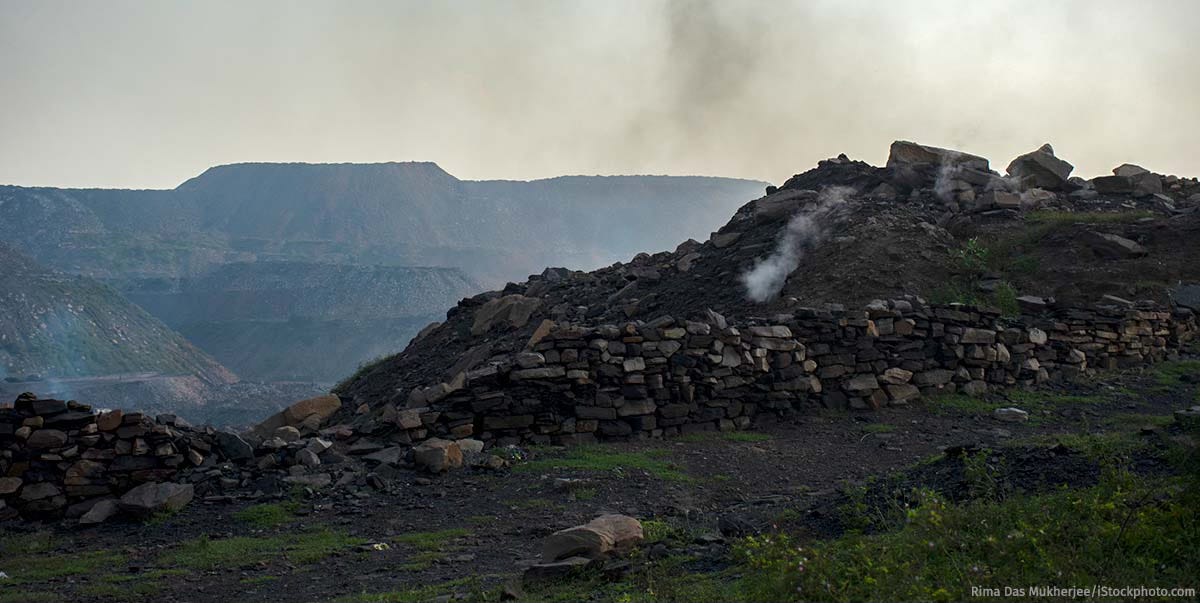Introducing 'Ask IndiaSpend'
Also this week, low justice system funding, delays in abandoned coal mine closures, and why India's anaemia burden is rising
We'll kick off this week's newsletter with an important announcement: Please meet Ask IndiaSpend—your personal research companion.
Our new chatbot gives you instant access to the wealth of data and insights from IndiaSpend's evidence-based reporting. Whether you're wondering about healthcare trends, environmental policies, or economic developments, type in your question and get reliable, fact-checked information drawn directly from our extensive archive of in-depth stories. No more searching through multiple articles or websites—Ask IndiaSpend puts our journalistic expertise at your fingertips 24/7. Try it today and experience a smarter way to stay informed about the issues shaping India's future.
In regular news, this week IndiaSpend investigates three critical issues facing India's development journey. Our reporting reveals concerning gaps in the justice system's funding, with even wealthy states spending just ₹389 per capita annually (excluding police costs)—less than a month's dairy expenses for most Indians. Meanwhile, the country's energy transition faces obstacles as only three coal mines have been properly closed in 16 years, leaving communities without reclaimed land and thousands unemployed. On the health front, India's anaemia crisis is worsening despite targeted programs, with new research showing that iron deficiency accounts for less than a third of cases—other culprits include vitamin deficiencies, chronic diseases, and even air pollution. These stories highlight a common thread: the need for more comprehensive, well-funded approaches to structural challenges that affect millions of Indians across justice, environment, and public health sectors.
Have you seen the recent report on India's justice system funding? Fascinating stuff! The 11 richest states boosted their justice system budgets by 36% to ₹1.97 lakh crore for 2024-25. That sounds impressive until you dig deeper, and realise that is just 0.32% of their combined GSDP (excluding police spending), compared to the UK's 0.5%.
The per capita spending is particularly eye-opening—only ₹389 annually without police costs (₹2,056 with police). That's less than what most Indians spend monthly on dairy products!
What's really concerning is the minimal investment in training—just 1.4% for police, 0.6% for prisons, and 0.5% for judiciary budgets. And despite the new criminal laws emphasizing forensics, less than 1% of police budgets goes there.
With 40% vacancies in forensic labs and massive case backlogs, experts are rightly calling for prioritized funding across the entire justice ecosystem. Shreehari Paliath unpacks the details.
Did you know that in 16 years since Coal India first issued mine-closure guidelines, only three coal mines have been officially closed? It's shocking, really. Out of 299 non-operational mines identified for closure in January 2024, just eight had even applied for formal closure by last August.
Most mines remain in limbo—neither reclaimed nor restored—which hurts both the environment and local communities. The first successfully closed mine, Pathakhera No. 02 in Madhya Pradesh, took almost 13 years to complete the process.
Experts say the government is reluctant to relinquish control over the land, continuing to extend mining leases even for abandoned sites. This prevents communities from reclaiming land and leaves thousands unemployed—about 100 miners lose jobs daily.
The proposed Coal Bearing Act Amendment Bill could potentially restore community ownership of land, but implementation faces significant challenges without adequate funding and clear policies. Sukriti Vats has the details.
The mainstream media appears to be distracted by Aurangazeb—meanwhile, have you heard of India's worsening anaemia crisis? Recent studies show that iron deficiency accounts for less than a third of anaemia cases in India.
Other major culprits include vitamin B12 and folate deficiencies, chronic diseases, infections like malaria and TB, and surprisingly, air pollution. Yes, you read that right—pollution triggers inflammation that reduces iron absorption and suppresses red blood cell production.
India's Anaemia Mukt Bharat programme focuses heavily on iron supplementation and fortified rice, but experts say this approach is too narrow. The solution? Better diagnosis before treatment, diet diversification beyond cereal-heavy meals, and ensuring nutrients like vitamin C are consumed alongside iron to improve absorption.
There's also a serious awareness gap—people need to understand the benefits of optimal hemoglobin levels and how to manage supplementation side effects. As one expert put it, anaemia is "as much a national health emergency as Covid was.” Charu Bahri uses data to alert us to an emergency.
In IndiaSpend Hindi, Mithilesh Dhar Dubey examines the impact on farmers and on agriculture of the record heat registered in February, coupled with less than optimal rain.





